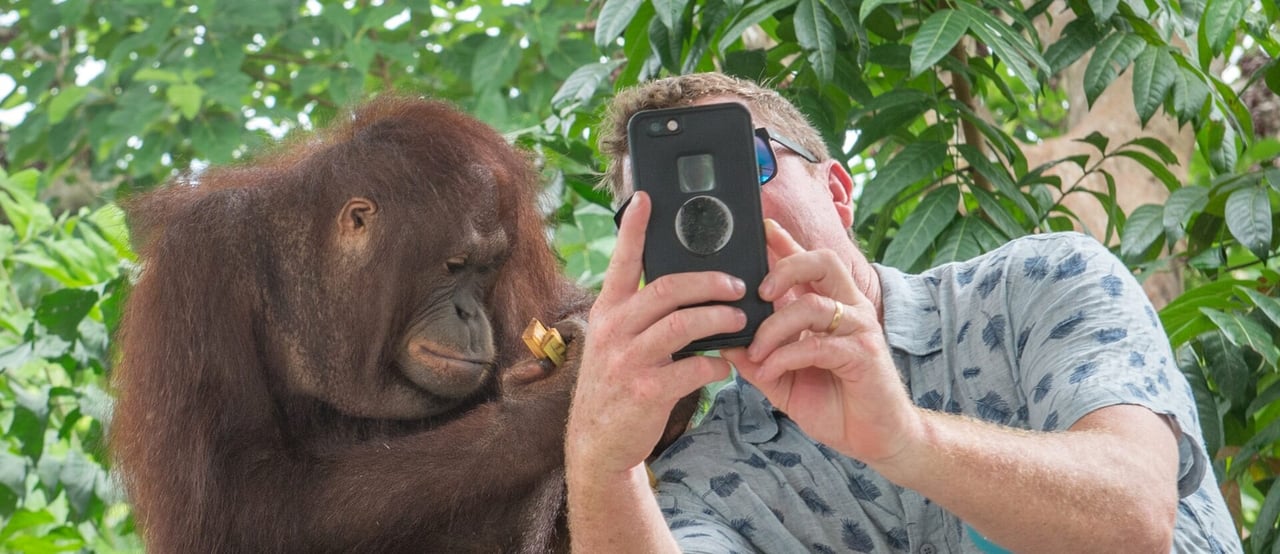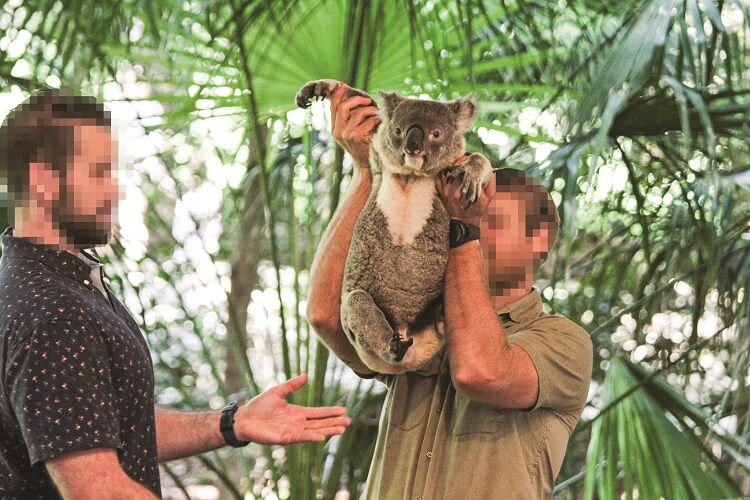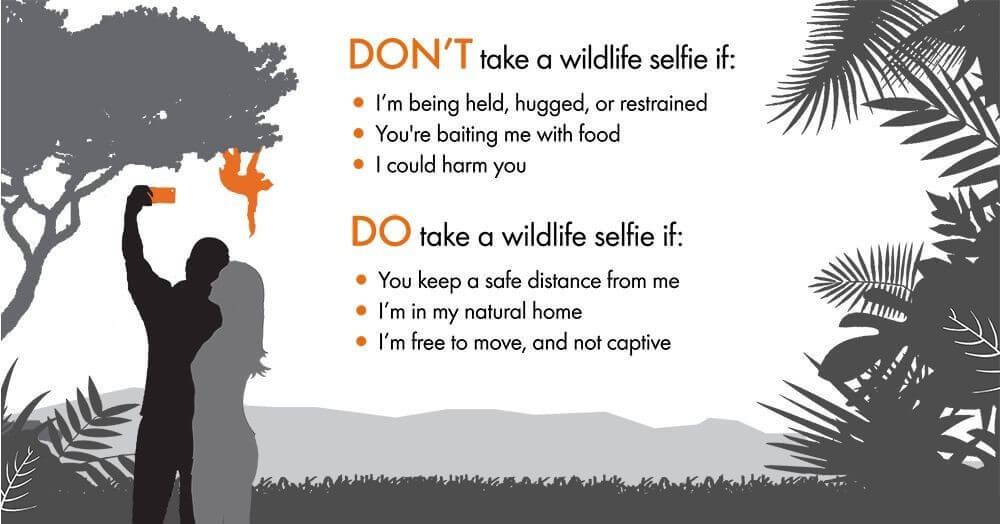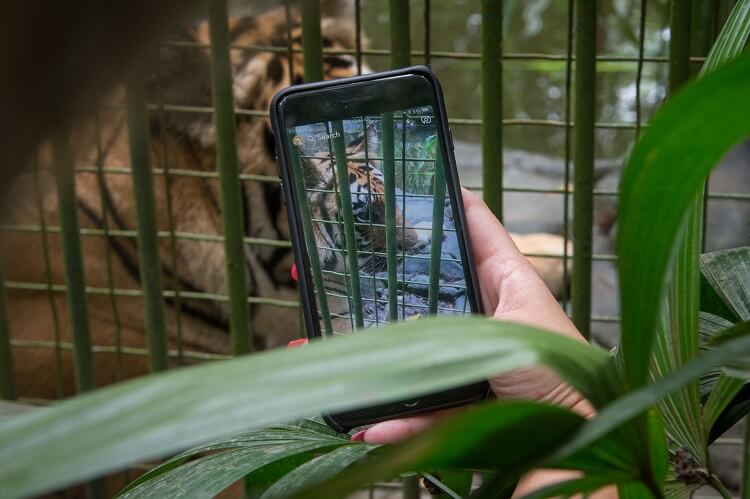Tiger selfies exposed
Read our 'Tiger Selfies Exposed' report and learn how tigers are exploited as part of Thailand’s entertainment industry.

Image credit: World Animal Protection / Andi Sucirta
Most tourists who take photos with wildlife love animals. That’s why they want to interact with them.
So, during once-in-a-lifetime trips to tourist destinations such as Thailand, Bali or the Amazon, it’s understandable that they’d want to take a snap with an elephant, an orangutan or a dolphin for Facebook or Instagram. This snap becomes a fond memory once back home.
But if they knew about the suffering these animals endure for the sake of a photo opportunity, they’d put their phones and cameras away.
Many people envy friends who post selfies such as a quokka selfie or hugging or holding other wild animals, which sadly encourages more people to take their own photos.
But, with ongoing help from supporters like you, we’re working to ensure animals in tourism venues remain fed and cared for during this current crisis.
Amongst the 34 billion images posted by millions of people on Instagram, our initial investigation showed there were tens of thousands of cruel selfies on Instagram taken with wild animals. Sadly, sharing cruel wild animal selfies on social media encourages more people to take their own photos. This continues the ongoing suffering and cruelty towards wildlife. Don’t be part of this ugly picture.


In December 2017, our Wildlife Selfie Code campaign was so successful that it influenced Instagram, one of the biggest social media sites, to educate its users around the suffering animal selfies can cause to wildlife.
Thanks to the 250,000 people who signed up to our Wildlife Selfie Code! Together, we were able to move Instagram to launch a new 'content advisory page', to educate users about the issues these photos cause for wild animals. Now, when any of Instagram’s 800 million users search hashtags like #koalaselfie and #slothselfie, which could be associated with harmful interactions with animals, they are warned about the dangers of this trend.
Together we’re ending cruel animal selfies and filtering cruelty out of more pictures every day.

Read our 'Tiger Selfies Exposed' report and learn how tigers are exploited as part of Thailand’s entertainment industry.
It may be tempting to take a photo with an animal. But that moment could cost them a lifetime of suffering.
Learn more about our 2025 research and investigation into koala cuddles at popular Queensland wildlife tourism venues.